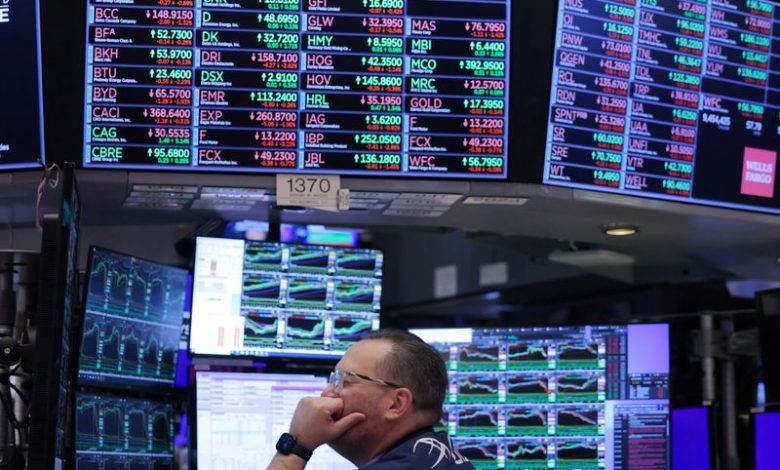
Goldman Sachs Forecasts Gradual Decline in Market Volatility, Identifies Buy Opportunities
The market wrapped up last week with little change after a partial recovery from a significant sell-off that started the previous week and escalated on Monday. This downturn was instigated by disappointing economic data, compounded by factors including deleveraging, crowded positions, and inadequate liquidity.
During the market turbulence, there was a notable increase in stock correlations and volatility. Specifically, the implied volatility surged to an intraday peak of 66 on August 5, a level that has only been surpassed during the sell-offs of March 2020 and the 2008 Financial Crisis.
According to strategists from Goldman Sachs, historical trends suggest that in the coming months, both stock correlations and implied volatility are likely to gradually return to normal levels.
In 12 instances since 2000, when cyclical stocks underperformed defensive stocks by more than 5 percentage points in a week, it indicated growing concerns about economic growth. The recent week mirrored these past episodes, which were characterized by significant spikes in both volatility and correlations.
The strategists observed, “Following these situations, both realized correlations and implied volatility, as represented by the VIX, typically declined slowly and stayed above pre-event levels even three months later.”
Looking ahead, the trajectory of the equity market will hinge on forthcoming economic data releases that will clarify the economic outlook. This will determine whether the market continues to focus on macroeconomic factors or shifts back to a more micro-driven environment as seen in the first half of 2024.
Labor market and consumer data are expected to be particularly crucial.
While the next jobs report is not slated until September 6, investors will keep a close eye on weekly jobless claims, retail sales, and earnings from major retailers, as well as labor components from Federal Reserve surveys later this month. According to Goldman Sachs, inflation data will likely take a backseat unless there are significant upward surprises.
“If the data supports our economists’ optimistic outlook, investors will probably shift their focus back to alpha opportunities rather than broader market trends,” the strategists mentioned.
They further added, “If fears concerning the economy continue to abate and the market becomes more micro-driven in the upcoming months, the recent sell-off may present an appealing opportunity to invest in stocks with strong fundamentals at discounted valuations.”
Historical trends indicate that implied volatility is likely to remain elevated leading up to Election Day, although concentrating on the impacts of specific policies could enhance sector and stock differentiation.
 GOOGL
GOOGL  META
META 


